Education and Gala Awards Ceremony
Introduction
(AFMI), a philanthropic charity organization, was founded in 1989 by a group of similar-minded Muslim Americans under the leadership of Dr. A.S. Nakadar. From its inception the goal of the organization has been to improve the socio-economic status of underprivileged Indian Muslim minorities through education. To further their goal of 100% literacy, AFMI has engaged in a number of projects, such as rehabilitation of Muslim educational institutions, establishing schools, vocational guidance for specialized courses, scholarships to deserving and needy students, establishment of centers of excellence, and educational motivation through recognition. This article is about the educational motivation program through recognition, called the AFMI Medal Program, and its scope and possible impact.
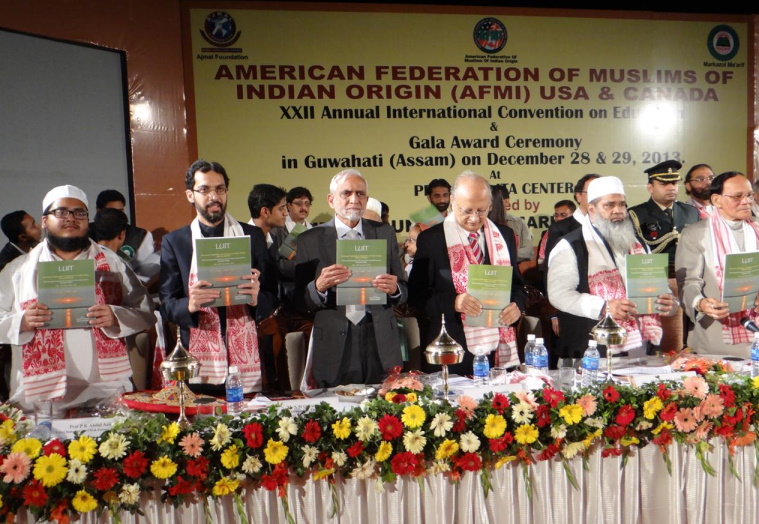
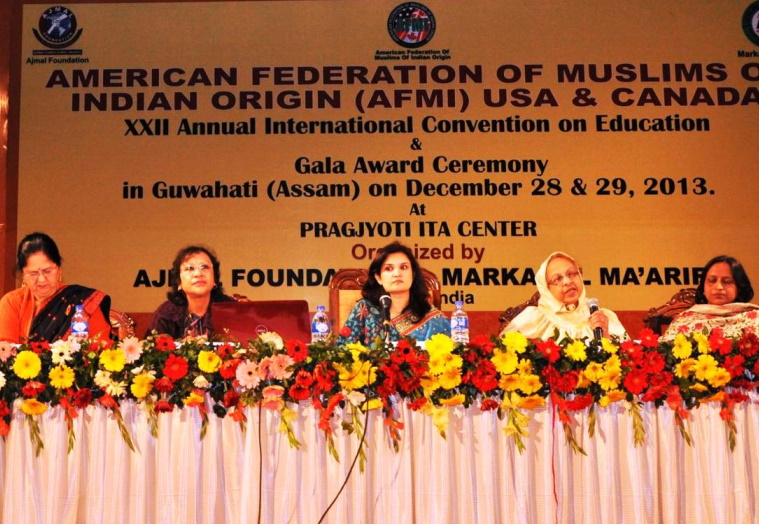
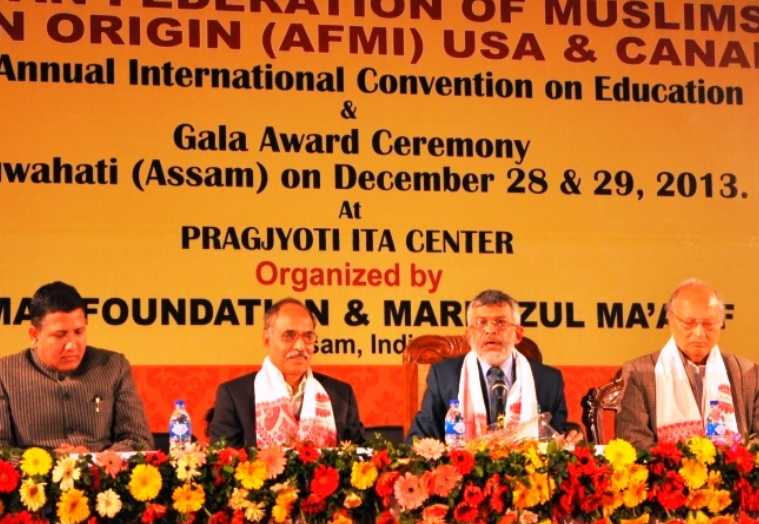
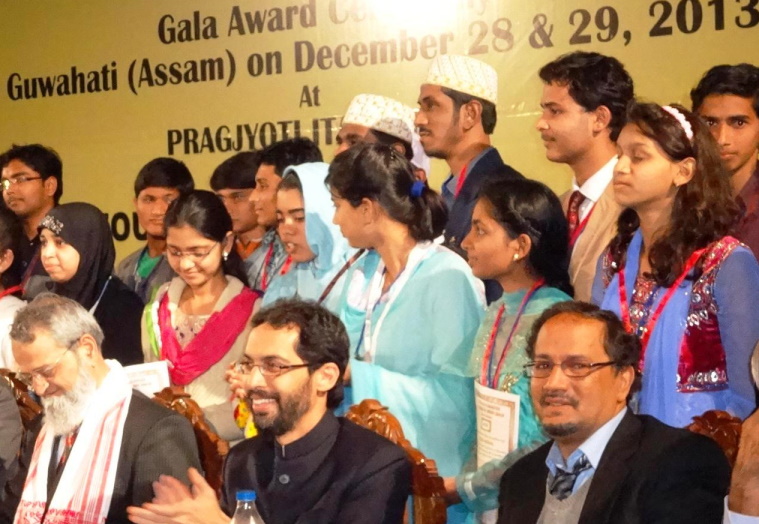
Education and Gala Awards
But this is only one aspect of the scenario. We also need to look at the other side to see where more effort is required. The above mentioned study also reports that out of the sample Muslim enrollment rates for boys and girls were at 66.5 per cent and 52.9 per cent. In addition, the report also states that drop-out starts earlier among Muslims than other groups. By the age of 14 there is a significant drop among the Muslims. This then is our challenge. To continue strengthening the primary school base of Indian Muslims while also expanding our support for students at the higher grades of school. Efforts in the regard are already being made by AFMI. In Kolkata, for instance, it has a plan for constructing a high school. In order to effectively implement its plans AFMI needs all the help that is out there. The American Muslim community in general, and the Indo-American Muslims in particular, have a special responsibility in this regard. If their help is not forthcoming then there is a real chance that much of the progress of past two decades will stall or be reversed. Education is at risk, and it is our responsibility to do all we can to wipe out the darkness of illiteracy from India. With the effects of the global economic crisis still being felt, it is vital that we support the vulnerable population in India in overcoming their inequality.
Scope and Impact of the Medal Program
The first medals were awarded by AFMI in 1993, with a modest start of 46 students who had demonstrated high academic achievement from five different states (Exhibit 1). By 2008, the number of students receiving the medals increased to 101, with a maximum of 110 in 2007, covering 18 states (Exhibit 2). Over the 16 year period (1993 to 2008), AFMI awarded a total of 1,296 medals, an average of 81 medals/year, to outstanding students from 25 different states and union territories (Exhibit 3) and over
- The author would like to recognize editorial help pro-vided by Dr. Habib Zuberi, Professor Emeritus, Central Michigan University.
- Among the many dignitaries were V.P. Singh, H.D.
Deve Gowda, Inder Kumar Gujral, Ram Vilas Paswan, Salman Khurshid, Dr. A.R. Kidwai, Saiyid Hamid, A.M. Ahmadi, and Sunil Dutt.
300 cities. Exhibit 4 presents the number of medals awarded to students from each state. UP and Gujarat have received the highest, 107 medals each; followed by Maharashtra with 105, Andhra Pradesh 97, Tamil Nadu 94, Karnataka and MP 87, and Rajasthan and West Bengal with 80 each.
Of the total 1,296 medals awarded, 479 were Gold, 421 Silver, and 395 Bronze. Further, a total of 738 (57%) medals were awarded to boys and 558 (43%) to girls. Interestingly, the mean percentage of marks 88.12% achieved by girls was significantly (t=3.49, p=.001) higher than the mean 86.95% marks achieved by boys. These results are consistent with anecdotal evidence from India and U.S. studies suggesting that girls perform significantly better than boys in education.
Students who received these awards performed at a very high level. Their examination scores ranged from 75 percent to 99.38 percent, with a mean score of 87.45 percent. In short, they all distinguished themselves as top ranking students in the country. What is most encouraging to note is that over the 16 year period[1] this study covers, the examination scores of the recipients have continued to improve. An analysis of the percentage achieved by medal recipients over the 16 year period from 1993 to 2008 shows a significant (p=.0068 to p=1.71E-09) upward trend (Exhibit 5 – Exam Percentage Regressed Over Time).
Conclusion
Further analysis shows that competition has become so keen that the difference of marks between a gold medalist and a silver medalist is hardly 0.1 % (1/10 of 1%) and in some states students receiving 96% don’t even get a bronze medal. Motivation theory recognizes the importance of extrinsic motivation from rewards and recognition for performance. Accordingly, this leads us to believe that an award system encourages students to be more competitive and, therefore, perform better at the exams. Hence, it is reasonable to conclude that AFMI’s medal program[2] has contributed positively to student achievement at the Board Exams.
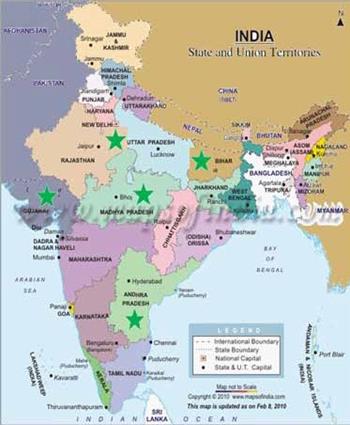
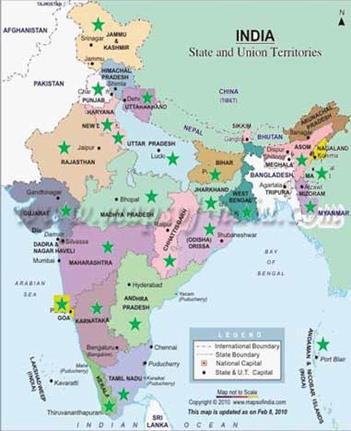
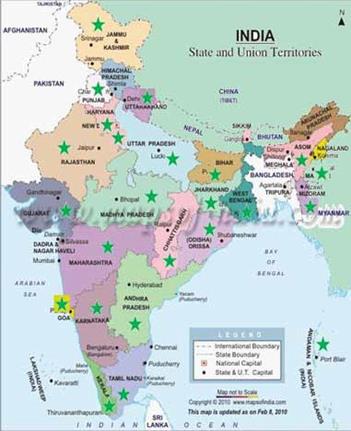
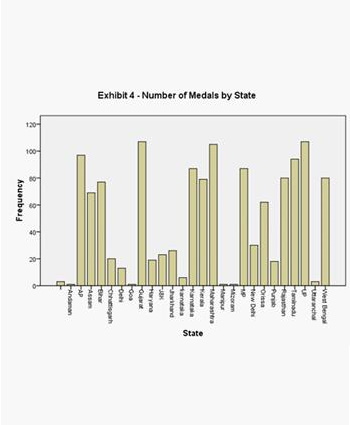
[1] Complete data available for 1993 to 2008 only.
[2] Sponsors of the AFMI medal program include Ali Qureshi, Dr. Shakir Mukhi, Dr. A.S. Nakadar, Babu Khalfan, Dr. Tajuddin Ahmad, Dr. Parvez Khan, Dr. Mohiuddin, Kamil Hasan, and Shahzad Shafiwala.
